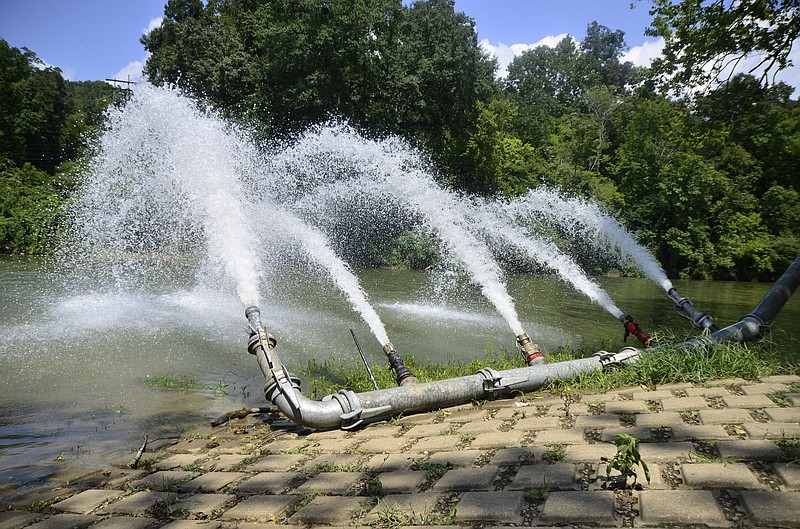Despite impassioned protests that it was doing the bidding of developers, the Chattanooga City Council voted on first reading Tuesday night to relax runoff rules for South Chickamauga Creek.
The change undoes a standard for stormwater runoff retention put in place four years ago for the damaged and ecologically fragile creek that drains some 400 square miles of land into the Tennessee River.
Proponents said the 2013 retention rule did nothing to halt sedimentation, erosion and habitat destruction in the creek but raised the cost of building businesses and homes.
Opponents assert doing away with it will put the city out of compliance with sewer regulations that are part of federal and state clean water rules, which could force adoption of expensive new programs.
The vote was 7-0, with council members Russell Gilbert and Demetrus Coonrod not voting. Both were at a memorial vigil for the Woodmore Elementary School bus crash victims. All the council members went to an earlier service for the dead and injured children, and Councilwoman Carol Berz called for a moment of silence as the meeting began.
The environmental rule requires builders and developers citywide to make sure the first inch of rainfall on any site is contained for the first 24 hours. That lets pollutants and sediment settle in the soil instead of being washed into waterways, and matches state and federal minimums.
In 2014, though, the city tightened the rule for South Chickamauga Creek, which is home to two threatened species, a snail darter and the Chickamauga crawfish. Setting the retention level at 1.6 inches was aimed at holding back more runoff, lessening sedimentation and erosion.
Putting up a building or paving a driveway or parking lot means there's less ground to absorb rainfall, and that means builders have to figure out and pay for other ways, such as retention ponds, bioswales, or other ways to collect and hold water. People who supported easing what's called the 1.6-inch "stay-on-volume" rule said it won't solve sedimentation problems but will drive up development costs and put the entire responsibility for a regional problem on a small group of builders.
And in a presentation two weeks ago, City Engineer Bill Payne told council members going from 1.6 inches to 1 inch might violate the city's federal and state sewer permit. If so, he said, the city might have to come up with unknown programs at unknown costs to fix things.
Then at Tuesday's agenda session, Public Works Administrator Justin Holland said the specific runoff limit isn't written into the permit so doing away with it won't put the city in violation. The 1.6-inch level is just one way the city can attempt to reach overall goals for federal and state water quality regulations. That could include anything from more frequent street cleaning to reforestation programs, he said.
"They don't tell us how to do it, they just tell us what we need to do," he said.
Upset creek supporters confronted Payne and Holland outside the meeting room, saying that went against what they'd been told for months and saying the city was working with developers while the public was left out.
Later, in the public comment period, Franklin McCallie asked the council to delay the vote and seek more public input. The city engineer's office is working on a costs-and-services study of development that Holland said should be coming out within a few weeks or months.
"Please raise us to the level of participation that we ought to be," McCallie said.
Former Chattanooga Mayor Ron Littlefield also counseled delay. He held up a copy of Governing magazine, for which he works, and said an editorial in the current edition addresses stormwater runoff as a national issue. He said the council should study what governments in other parts of the country are doing, and added the city could be courting liability by weakening the rule.
"You can change the regulations of man but you can't change the laws of physics," Littlefield said.
The ordinance must be passed on second reading to become law. It's on the agenda for Tuesday.
Contact staff writer Judy Walton at jwalton@timesfreepress.com or 423-757-6416.
